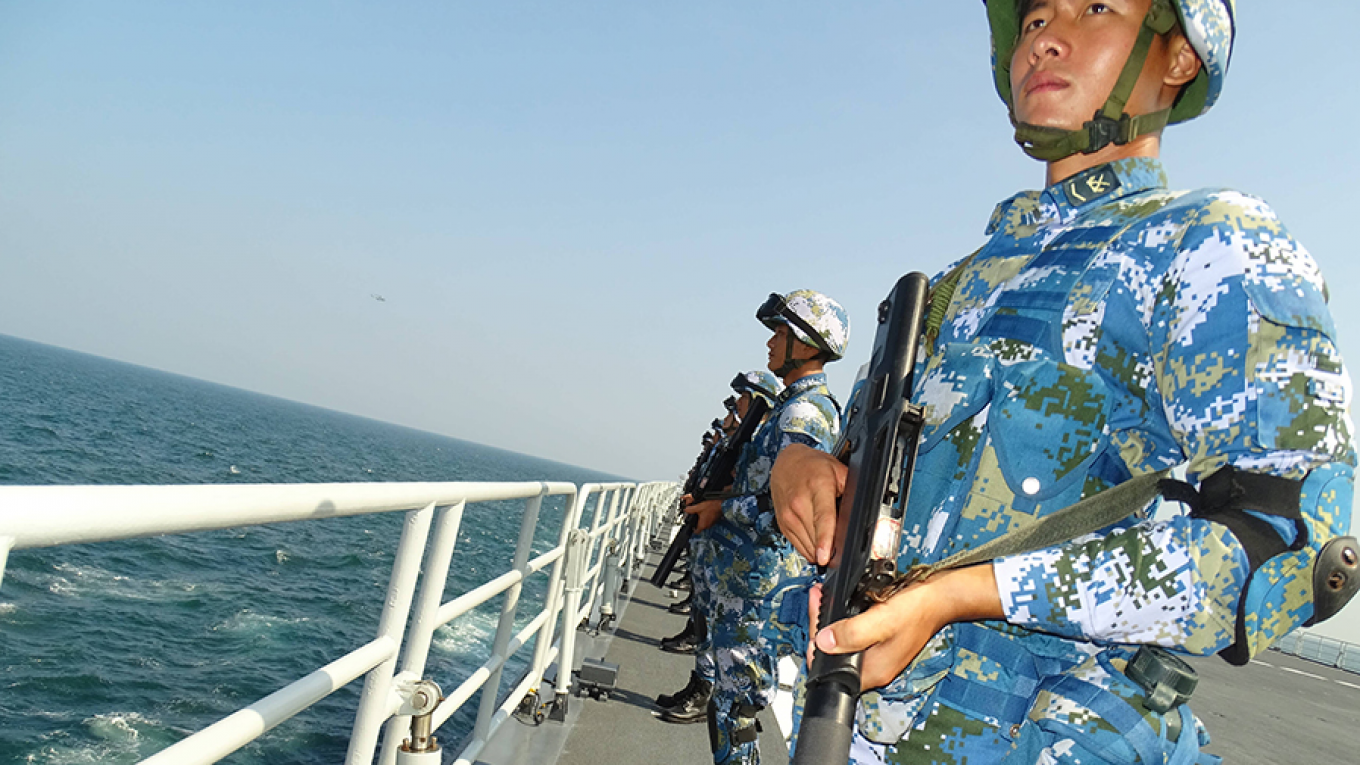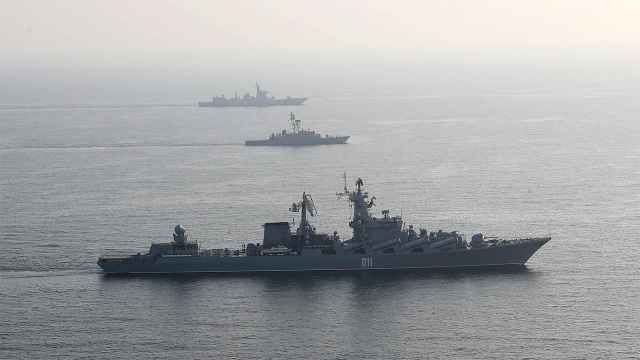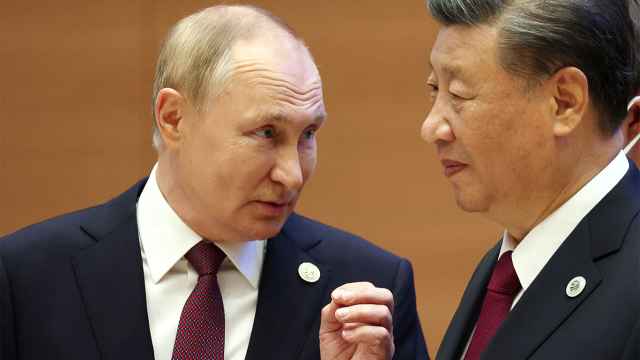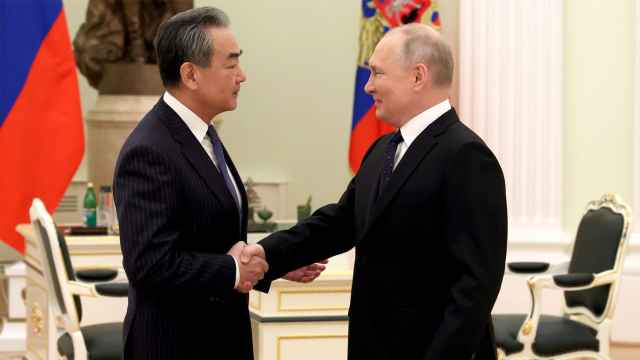For years, Russian-Chinese naval exercises have been staged closer and closer to potential conflict zones while the training scenarios have become increasingly realistic.
In 2015, the countries ran war games in the Eastern Mediterranean, not far from Syria. In 2016 the joint exercise was held in the South China Sea, where China is locked in territorial disputes.
Russia and China’s Joint Sea-2017 exercise, which took place on the main stage of the current Russia-NATO military standoff, in the Baltic Sea this week was no exception.
NATO’s military buildup in Eastern Europe is based on the theory that Russia may have the capability and the intention of attacking the Baltic states and possibly Poland.
This theory is of purely political design, necessary to create a united U.S.-EU front against Russia on a number of political economic issues. In reality, even the USSR took NATO Charter Chapter 5 obligations very seriously and would not dare to invade a NATO member.
Russia, compared to the Soviet Union, is even more serious about that and this is the reason why Russia is dedicated to opposing NATO enlargement.
In this new reality, the United States needs to distribute its limited military resources between several parts of the world. It is tasked with containing Russia, China and Iran at the same time. It is also deterring North Korea, fighting ISIS in Iraq and Syria and the Taliban in Afghanistan.
The United States’ political investment in the Russian threat theory is making the Baltic region more relevant to Washington’s adversaries around the world.
Basically, in the current situation, Russia has the power to have any desired number of the U.S. troops bogged down in Eastern Europe doing nothing at any given moment.
Russia just needs to publish some strong-worded political statements and hold large exercises — like the upcoming West-2017 planned for September.
U.S. troops will pose little real danger to Russia since it is a nuclear superpower. They will have to pretend to defend Europe from an invasion that will never come while being absent from the parts of the world where they could fight and make a difference.
This new connection between the European and Pacific theaters creates new venues for the Russian-Chinese cooperation. Russia is in general not interested in getting involved in China's conflicts with other East Asian countries, which are seen by Moscow as important and promising economic partners, especially Japan.
Now, Russia can greatly impact the military balance of powers in the Pacific by simply making rather empty military gestures in Europe. In this case a formal alliance between Russia and China is not even needed to produce a decisive strategic impact.
The Joint Sea-2017 exercise allowed China to show political support for Russia’s security interests in the region while increasing Chinese understanding of security developments there.
The exercise included most of the highest tech tools of the modern naval warfare including air defense and anti-submarine warfare. But most of the official statements from the both sides have highlighted the ’humanitarian’ aspects of the training, including counter-piracy and disaster relief.
For Russia, this show of political support from a major power is useful for strengthening its position in dialogue with NATO.
The new connection between the Atlantic and Pacific theaters is not working on the Russian-Chinese side only.
Since 2013-2014, the EU has increased its political and military involvement in to the South China Sea issues, with Britain and France increasing their military presence in the region.
Early this year French warships passed through the South China Sea and conducted joint exercises with the United States and Japan. The British Defense Ministry recently reiterated its plans to send a newly built carrier to patrol in the South China sea.
Apparently, the only reason for this activity is the desire of the Europeans ’to have something on the table’ while discussing important global issues with the Americans.
The Chinese are known for valuing reciprocity, so the growing presence of the People’s Liberation Army Navy in the European waters will probably be a part of new normality.
Vasily Kashin is Senior Fellow at the Institute of Far Eastern Studies of the Russian Academy of Sciences and Senior Research Fellow at the Center for Comprehensive European and International Studies, Higher School of Economics.
The views and opinions expressed in opinion pieces do not necessarily reflect the position of The Moscow Times.
A Message from The Moscow Times:
Dear readers,
We are facing unprecedented challenges. Russia's Prosecutor General's Office has designated The Moscow Times as an "undesirable" organization, criminalizing our work and putting our staff at risk of prosecution. This follows our earlier unjust labeling as a "foreign agent."
These actions are direct attempts to silence independent journalism in Russia. The authorities claim our work "discredits the decisions of the Russian leadership." We see things differently: we strive to provide accurate, unbiased reporting on Russia.
We, the journalists of The Moscow Times, refuse to be silenced. But to continue our work, we need your help.
Your support, no matter how small, makes a world of difference. If you can, please support us monthly starting from just $2. It's quick to set up, and every contribution makes a significant impact.
By supporting The Moscow Times, you're defending open, independent journalism in the face of repression. Thank you for standing with us.
Remind me later.






